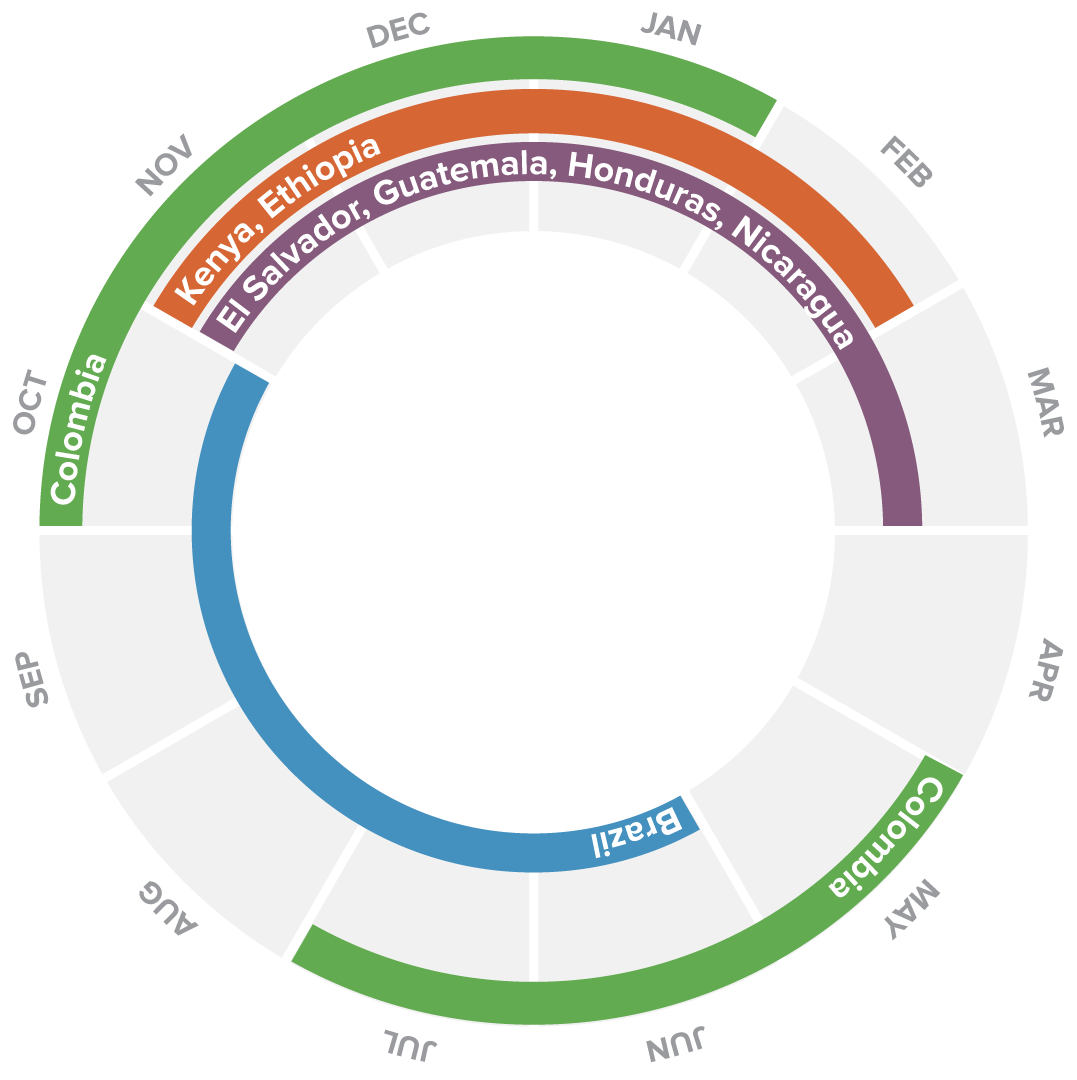The Kiandu Coffee Factory is part of the Mutheka Coffee Farmer’s Society, which is made up of around 6,000 active members. Each of these farmers grows 160 or so coffee trees, and most farms grow other crops such as maize, beans, and sweet potato.
After picking, the ripe coffee cherry is brought to the factory by the farmers, before it is processed to remove the skin and pulp, before coffee undergoes a dry fermentation to break down the mucilage sticking to the parchment, staying in the fermentation tanks for eighteen to 24 hours.
Then, coffee travels through washing channels to ensure all the pulp is removed and goes through one final overnight soak before being spread out on raised drying tables where it stays for 7-15 days, depending on climate, ambient temperature and the amount of coffee being processed.
From farmer to coop to factory
Kenya’s coffee production is made up of smallholder coffee farms, large estates and small estates. There are over 700,000 smallholders who make up about 55% of the Kenya’s production.
Smallholders are organized in to cooperative societies, which act as umbrella organisations for the factories (also known as wetmills) where these producers deliver their coffee crops for processing.
There can be several factories in an area which farmers are free to choose to deliver their cherry. Due to the traditional auction system in Kenya, quality is rewarded with higher prices, with better factories attract more farmers by producing coffee that fetches the highest prices, which then delivery higher returns to the farmers.
A coffee calendar

Like all farmed crops, coffee plants are affected by seasons and most countries have specific harvest periods where workers will travel through coffee regions picking coffee by hand. This seasonality means you’ll see different countries come and go from cafes through the year, and it’s also the reason coffee blends change through the year as fresh crops arrive.






